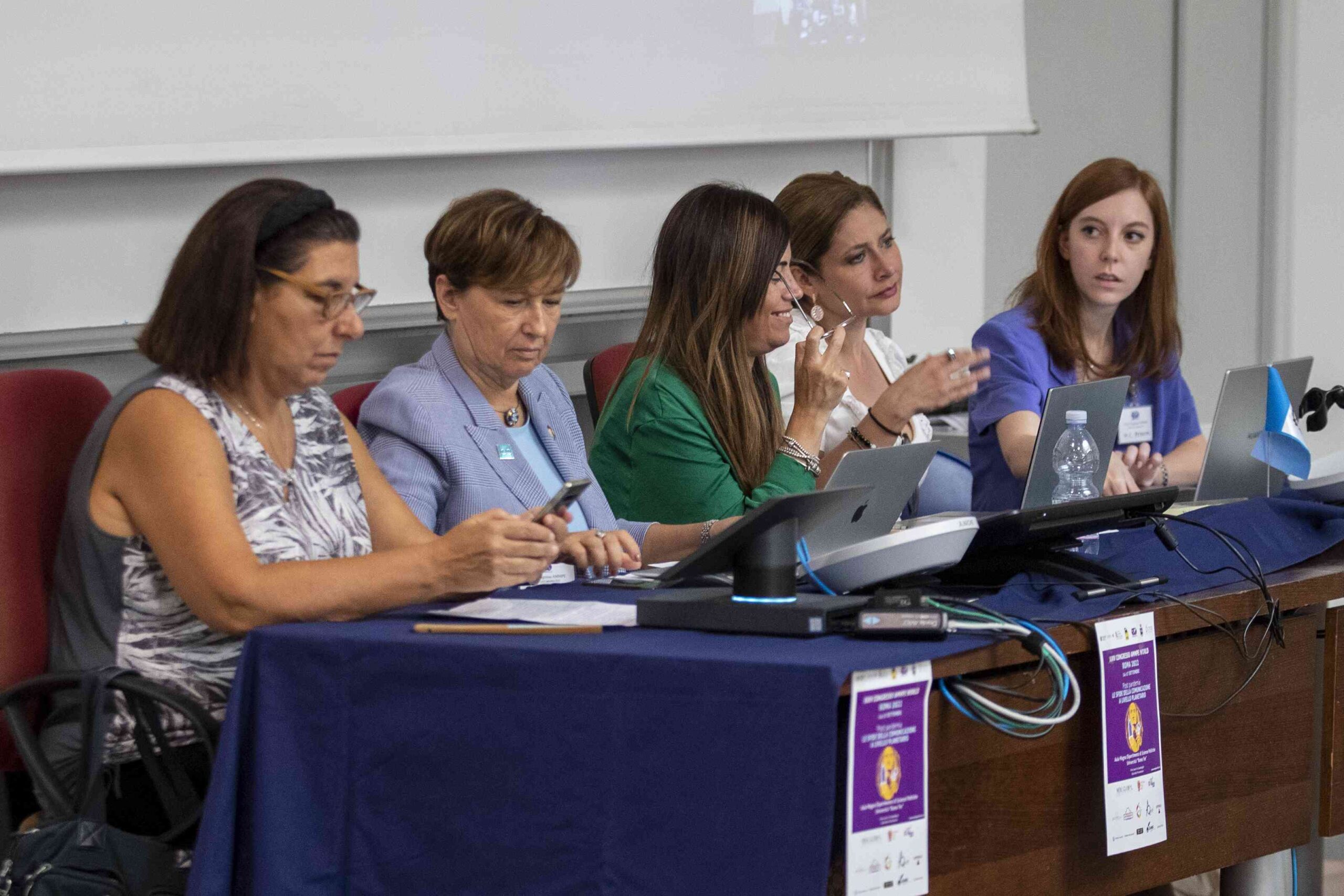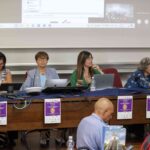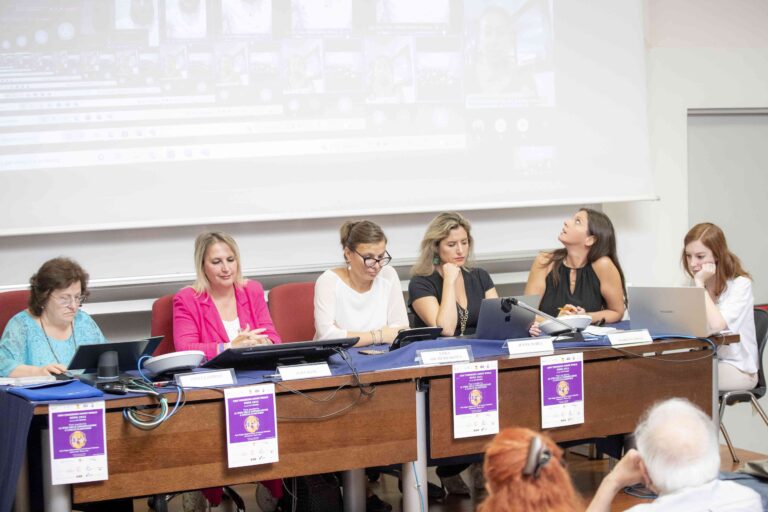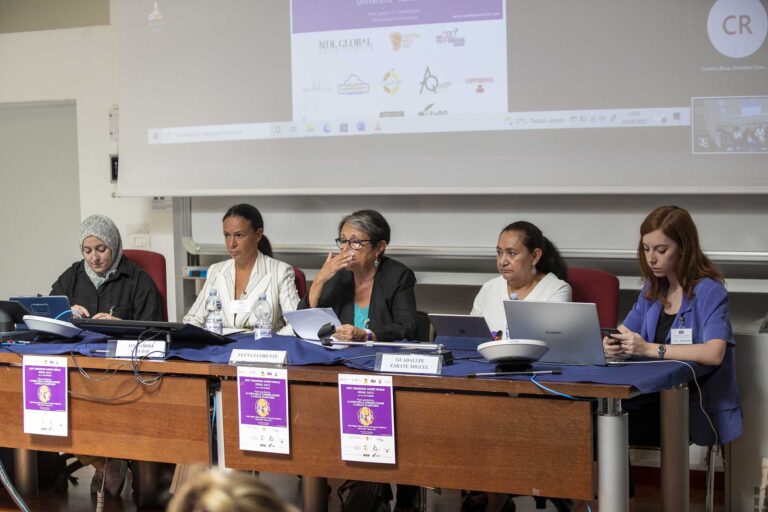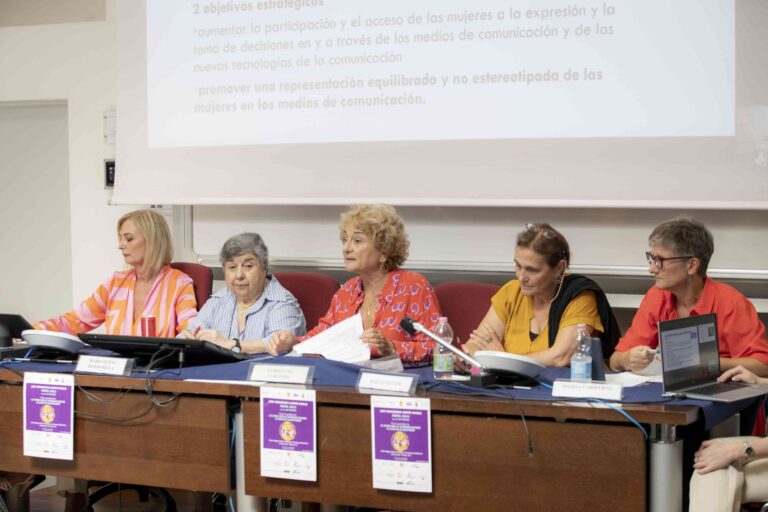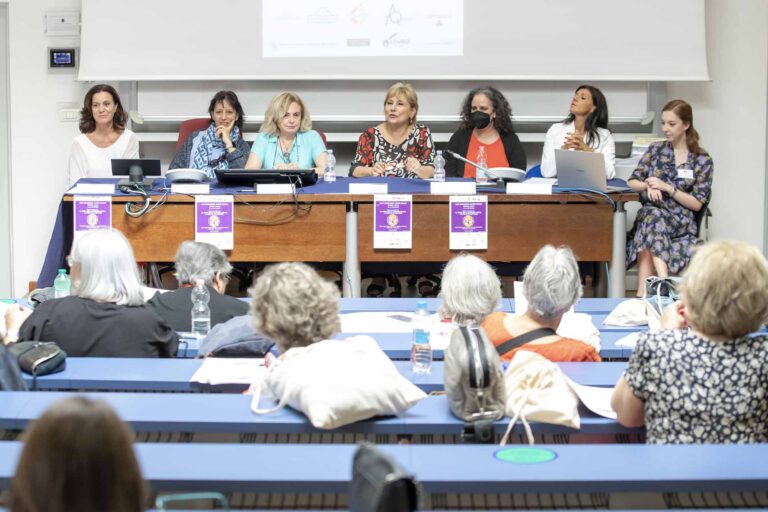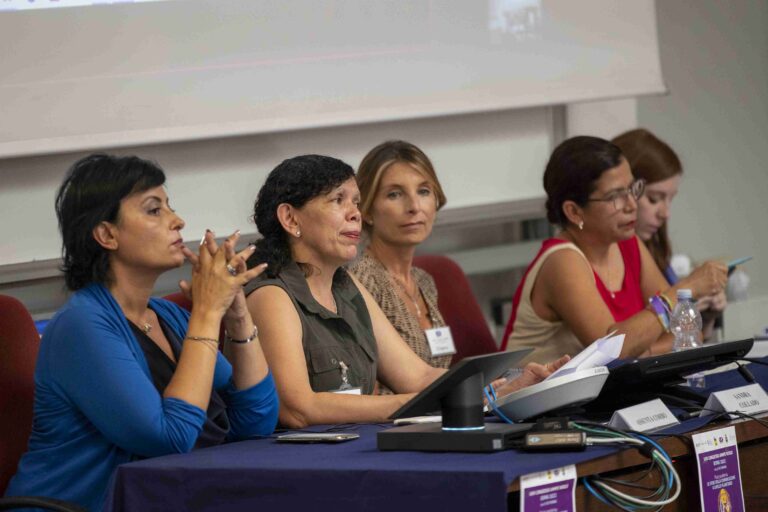Environment and climate change
Moderator: Raffaella Pergamo
Speakers: Nadia Scialabba (Italia), Raffaella Zucaro (Italia), Marica di Pierri (Italia), Fernanda Gallo (Italia), Lorena Rosales (Guatemala), Elisabeth Mejia (México), Dario Dongo (Italia)
The moderator RAFFAELLA PERGAMO introduces the topic by recalling that CREA, entity of which forms part as an expert, represents the most important Italian research body on agri-food, divided into 12 Research Centers, located throughout the national territory (19 Regions) divided into 6 Disciplinary Research Centers and 6 of Supply Chain Research. The Institute’s research activity is mainly oriented towards two different levels: institutional support and applied research on agricultural and supply chain systems.
The moderator believes that the topic of climate change is much debated, not only because it is a goal of the 2030 Agenda, but also because a number of policies converge in emphasizing the need to change course. The sustainability of agri-food production systems in relation to water scarcity and soil degradation, climate change and the threat to food security is one of the most urgent and shared challenges at European and national level. Indeed, it is a consolidated opinion that the management and sustainable use of natural resources such as water and soil is a crucial prerequisite for obtaining an agricultural system resilient to ongoing climate change and the risks they entail, and which is capable of ensure the growth of the agri-food sector, taking into account the needs of future generations.
The topic proposed by NADIA SCIALABBA, ecologist with 33 years of experience at the Food and Agriculture Organization of the United Nations (FAO), Rome, Italy, concerns climate policies on livestock farms. Enteric methane emissions are driving governments to restrict pasture farming, which translates into a wrong if not disastrous trend for pasture farming, while intensively producing farms go unpunished.
La intervención en vídeo de RAFFAELLA ZUCAROThe video intervention by RAFFAELLA ZUCARO, director of the Emilia Romagna Consortium, concerns the importance of women’s work in the world of reclamation with particular attention to the Emilia Romagna area, where women also hold top management roles. The action carried out by the Consortia is very important in dealing with emergencies deriving from climate change such as drought events, above all by guaranteeing the protection of the territory in terms of hydrographic network.
The topic of MARICA DI PIERRI, editor-in-chief of EconomiaCirculare.com, journalist and popularizer, and co-founder of the CDCA – Documentation Center on Environmental Conflicts, is that of climate agreements from reduction targets to the phase out from coal, from zero emission horizon for climate finance, for which 2022 is the decisive year but with some worrying situations, because if it is true that 90% of countries have undertaken to establish when to zero emissions, China and Russia have taken 10 years longer than science recommends – 2060 instead of 2050; India has announced that it is aiming for 2070.
It will be necessary to reiterate at COP27 that there will soon be a historic pact between developed and emerging economies: a pact of climate solidarity, in which all countries make an effort more to reduce emissions this decade in line with the 1.5 degree goal.
The speech by FERNANDA GALLO, International Vice President of Zonta International and its Foundation for Women for the two-year period 2022-24, concerned the link between climate change and the gender issue, considering that women are recognized as more vulnerable to the impacts of climate change and environmental disasters bear most of the consequences, and therefore gender-sensitive measures are needed and at the same time women’s contribution to building a sustainable future has proven to be highly significant at all levels (from government bodies to private business leadership, from global to local advocacy and actions), yet women are severely underrepresented in decision-making positions and at the negotiating tables.
The intervention of LORENA ROSALES, journalist, expert in public relations and strategic communication, university professor in Sustainable Development and consultant in Corporate Social Responsibility in Guatemala, highlighted the need for a change in production and consumption models for more efficient management of raw materials, reducing food waste, promoting controlled use of chemicals and reducing waste. All this because the standard of living of countries with higher incomes is the cause of greater pollution even for the poorest countries from which raw materials and energy are required in an uncontrolled and, above all, harmful way for the environment.
The discussion by ELISABETH MEJIA, Basic Education teacher, archeology graduate and anthropology doctor at the National School of Anthropology and History in Mexico, focused on managing the consequences of climate change on world heritage, given that ICOMOS (International Council of Monuments and Sites) for 2020 has released its declaration on cultural heritage and the climate emergency, recognizing that this change represents an emergency of all humanity.
The argument of DARIO DONGO, lawyer and journalist expert in food and consumer law at European and international level and activist for the rights of people with disabilities, president of the Egalité association, was that of sustainable mobility with particular attention to the need a modernization of existing infrastructures in large cities, which would allow not only the safe mobility of frail people with various motor difficulties, but also less pollution with the widespread use of low-polluting means such as the bicycle. Similarly, the completion and provision of new pedestrian paths, as well as cycle paths, would allow reaching the central working areas with less difficulty, easing the traffic during central hours.
